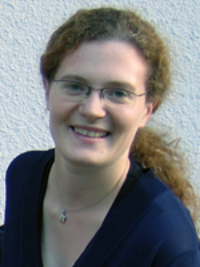Professor Anna Lora-Wainwright
Professor Anna Lora-Wainwright
Professor of the Human Geography of China
Fellow
Research Interests
Anna's current research covers a diverse range of topics, including: how socio-politically situated perceptions of development and consumerism intersect with attitudes to health and pollution in the Chinese countryside; lay cancer aetiologies; home care for illness and attitudes to formal healthcare provision; how coexisting moral economies of subsistence and the market are articulated in everyday life; experiences of urbanisation and land loss; international flows of e-waste; resistance to waste incineration; the rise of citizen science in rural China; the production and contestation of knowledge around pollution; environmental health activism and the formation of 'environmental health subjects.'
Anna's first monograph Fighting for Breath: Living Morally and Dying of Cancer in a Chinese Village is based on a total of 18 months of fieldwork in rural north-east Sichuan province starting in 2004. It is the first book-length ethnography to offer a bottom-up account of how families strive to make sense of cancer and care for sufferers in contemporary rural China. It explores lay perceptions of illness causality and everyday practices of care as prisms to understand how relationships with family members, locality and the state are reproduced or contested since the socio-economic reforms. Her second monograph, Resigned Activism: Living with Pollution in Rural China (2017, MIT Press) draws on fieldwork in three sites undertaken in collaboration with colleagues detailed above and on a close analysis of Ajiang Chen's work on 'cancer villages' to examine the complex spectrum of local responses to pollution. Anna also edited a special collection for The China Quarterly on 'Dying for Development: Pollution, Illness and the Limits of Citizens' Agency in China' (2013) and co-edited a special section of the journal AREA on 'Peering Through Loopholes, Tracing Conversions: Remapping the Transborder Trade in Electronic Waste' (2015, with Peter Wynn Kirby). Her research has appeared in Social Anthropology, The China Quarterly, The China Journal, The Journal of Contemporary China, Evidence and Policy, The Pace Environmental Law Review, World Development, Positions, and AREA.
Since 2006, her interests in cancer and in the mutual relationship between health, human activity and environment have led Anna to focus more closely on pollution in rural China, and she has organised and taken part in several interdisciplinary workshops on these topics. In 2012 Anna was awarded a Leverhulme Trust Research Fellowship to fund a year of research and work on her second monograph. In 2014 she spent a month at the Rockefeller Foundation Bellagio Center continuing work on the book. In 2013, Anna was awarded Philip Leverhulme Prize in Geography which has supported her research on pollution, health and activism in rural China and the development of new projects. She is director of a Leverhulme Trust Project on 'Circuits of Waste and Value: Making E-waste Subjects in China and Japan' (£322,557) which built on previous research with Peter Wynn Kirby funded by a John Fell Award Award and in collaboration with Prof Li Liping at Shantou University. She was also co-investigator (with Thomas Johnson and Jixia Lu) on the project 'Coalitions of the "weak": fighting pollution at China's rural-urban interface', funded by Hong Kong Research Grants Council (HK$457,168). Her past research was supported by the Leverhulme Trust, the British Academy, the Arts and Humanities Research Council, the British Inter-University China Centre (phase 1 and 2) and the Social Science Research Council.






